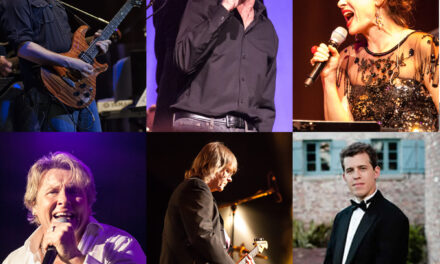How would you bring to a proper culmination the most glorious Saturday afternoon of an otherwise harsh winter? Fans of choral and organ music found such a way in the stately sanctuary of Edenton Street United Methodist Church. There the American Guild of Organists (Central North Carolina Chapter) presented its Choral Festival Concert Program. The chorus comprised some fifty singers representing a dozen churches, from the Triangle area to as far away as Sanford.
Conducting the ad-hoc group was James Kallembach, a graduate of the Indiana University Jacobs’ School of Music, now director of choral activities at the University of Chicago. Organist Thomas Fielding also graduated from Jacobs’ School of Music. He is Director of Music at Sacred Heart Cathedral (Raleigh), and he serves as Dean of the Central North Carolina Chapter of the A. G. O. These highly credentialed musicians put together a diverse program of choral works that highlighted the organ (no surprise here!) as well as the choristers.
Opening was a safe old standby, “With a Voice of Singing” by Martin Shaw. Following was a true masterpiece, Brahms’ “Geistliche Lied.” Here the singers seemed to have settled down, showing good preparation and sounding like a longstanding ensemble. “My God Is So High” by Moses Hogan (1957-2003) represented the group’s venture into the spiritual and somewhat contemporary realm. Kallembach allowed the accessible music to come through without any of the theatrics that can sometimes get in the way of a fine spiritual.
Of the ten numbers by the group, probably the finest and most well realized was “Like As the Hart Desireth the Waterbrooks.” The English composer Herbert Howells wrote this work in 1941 as the third and most celebrated of his set, Four Anthems. Written in the early days of the Great War, its text from Psalm 42 projects mystery, apprehensiveness and power. “My tears … daily say unto me, / Where, where is now thy God?” Singers, conductor and organist collaborated in a manner that left little to be desired.
Although the organ was prominent throughout, one work rates special mention. Fielding demonstrated the magnificent LèTourneau Pipe Organ and his own noted skill with the “Fugue sur le thème du carillon des heures de la cathèdral de Soissons” by Maurice Duruflè (1902-1986).
Closing the afternoon was an arrangement of “A Mighty Fortress Is Our God” by Benjamin Harlan. So extraordinary was this piece that it could have been billed as “An Organ Showpiece, With Auxiliary Choir.” The audience was invited to chime in on the fourth verse.
By spending the better part of a day in a choral workshop with these musicians, the singers here were doubtless able to take back to their respective churches a greatly enhanced set of music skills.











